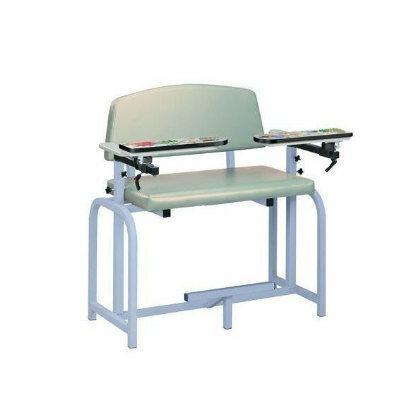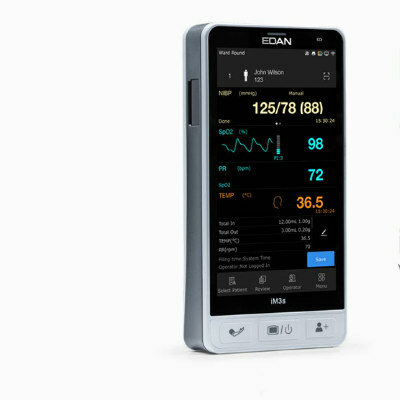MEDICA 2024 to Highlight Hot Topics of MedTech Industry
|
By HospiMedica International staff writers Posted on 08 Nov 2024 |

Once again this year, everything at MEDICA (Düsseldorf, Germany) will revolve around the major trends and challenges in medical technology. The focus will be on four key topics that will have a lasting impact on the industry: Artificial Intelligence & Big Data, Robotics & Assistive Systems, Connected Care, and Skills Shortage & Staff Development.
The integration of artificial intelligence (AI) and big data into medical technology is revolutionizing healthcare. From precise diagnostics and personalized treatment plans to accelerated drug research – AI and big data are opening doors to new possibilities. At MEDICA 2024, visitors will have the chance to experience exciting solutions and research approaches that raise the efficiency and accuracy of medical procedures to a new level. Experts will present how these technologies support precise navigation during surgical procedures or optimize diagnoses by analyzing large amounts of data. Robotics and assistive systems are changing the way medical treatments are performed. At MEDICA 2024, attendees will experience how surgical robots make minimally invasive procedures more precise and rehabilitation robots speed up the recovery process. These technologies not only offer enormous added value for patients but also relieve the burden on medical staff. Visitors will be inspired by the latest developments that take efficiency and patient safety in the healthcare industry to a new level.
In an increasingly digitalized world, connected care plays a key role in medical technology. The combination of medical devices, digital platforms, and real-time data enables optimized patient care. At MEDICA 2024, everything revolves around connected solutions that enable precise diagnoses and treatments through wearables and implants. Connected care not only offers new possibilities for the treatment of patients but also supports medical professionals in making decisions more efficiently. The shortage of skilled workers poses considerable challenges for the medical technology industry. At MEDICA 2024, visitors will find out how companies are tackling this problem with innovative approaches to personnel development. Training programs, further education offers, and strategic personnel planning are crucial for attracting qualified specialists and retaining them in the long term. Attendees can learn from leading experts how targeted measures can secure the future of medical technology and what the current trends are in the field of personnel development.
Related Links:
MEDICA
Latest Business News
- Expanded Collaboration to Transform OR Technology Through AI and Automation
- Becton Dickinson to Spin Out Biosciences and Diagnostic Solutions Business
- Boston Scientific Acquires Medical Device Company SoniVie
- 2026 World Hospital Congress to be Held in Seoul
- Teleflex to Acquire BIOTRONIK’s Vascular Intervention Business
- Philips and Mass General Brigham Collaborate on Improving Patient Care with Live AI-Powered Insights
- Arab Health 2025 Celebrates Landmark 50th Edition
- Boston Scientific Acquires Medical Device Company Intera Oncology
- Start-Ups To Once Again Play Starring Role at MEDICA 2024
- Boston Scientific to Acquire AFib Ablation Company Cortex
- Hologic Acquires Gynesonics to Strengthen Existing Gynecological Surgical Business
- Smith+Nephew and JointVue Partner on Ultrasound Preoperative Planning in Robotics-Assisted Surgery
- Stryker Completes Acquisition of NICO Corporation
- BD Completes Acquisition of Critical Care from Edwards Lifesciences
- ZOLL to Acquire Vyaire Medical’s Ventilator Business
- Getinge Acquires Organ Transport Products and Services Company Paragonix Technologies
Channels
Critical Care
view channel
Ingestible Smart Capsule for Chemical Sensing in the Gut Moves Closer to Market
Intestinal gases are associated with several health conditions, including colon cancer, irritable bowel syndrome, and inflammatory bowel disease, and they have the potential to serve as crucial biomarkers... Read moreNovel Cannula Delivery System Enables Targeted Delivery of Imaging Agents and Drugs
Multiphoton microscopy has become an invaluable tool in neuroscience, allowing researchers to observe brain activity in real time with high-resolution imaging. A crucial aspect of many multiphoton microscopy... Read more
Novel Intrabronchial Method Delivers Cell Therapies in Critically Ill Patients on External Lung Support
Until now, administering cell therapies to patients on extracorporeal membrane oxygenation (ECMO)—a life-support system typically used for severe lung failure—has been nearly impossible.... Read moreSurgical Techniques
view channel
Pioneering Sutureless Coronary Bypass Technology to Eliminate Open-Chest Procedures
In patients with coronary artery disease, certain blood vessels may be narrowed or blocked, requiring a stent or a bypass (also known as diversion) to restore blood flow to the heart. Bypass surgeries... Read more
Intravascular Imaging for Guiding Stent Implantation Ensures Safer Stenting Procedures
Patients diagnosed with coronary artery disease, which is caused by plaque accumulation within the arteries leading to chest pain, shortness of breath, and potential heart attacks, frequently undergo percutaneous... Read more
World's First AI Surgical Guidance Platform Allows Surgeons to Measure Success in Real-Time
Surgeons have always faced challenges in measuring their progress toward surgical goals during procedures. Traditionally, obtaining measurements required stepping out of the sterile environment to perform... Read morePatient Care
view channel
Portable Biosensor Platform to Reduce Hospital-Acquired Infections
Approximately 4 million patients in the European Union acquire healthcare-associated infections (HAIs) or nosocomial infections each year, with around 37,000 deaths directly resulting from these infections,... Read moreFirst-Of-Its-Kind Portable Germicidal Light Technology Disinfects High-Touch Clinical Surfaces in Seconds
Reducing healthcare-acquired infections (HAIs) remains a pressing issue within global healthcare systems. In the United States alone, 1.7 million patients contract HAIs annually, leading to approximately... Read more
Surgical Capacity Optimization Solution Helps Hospitals Boost OR Utilization
An innovative solution has the capability to transform surgical capacity utilization by targeting the root cause of surgical block time inefficiencies. Fujitsu Limited’s (Tokyo, Japan) Surgical Capacity... Read more
Game-Changing Innovation in Surgical Instrument Sterilization Significantly Improves OR Throughput
A groundbreaking innovation enables hospitals to significantly improve instrument processing time and throughput in operating rooms (ORs) and sterile processing departments. Turbett Surgical, Inc.... Read moreHealth IT
view channel
Printable Molecule-Selective Nanoparticles Enable Mass Production of Wearable Biosensors
The future of medicine is likely to focus on the personalization of healthcare—understanding exactly what an individual requires and delivering the appropriate combination of nutrients, metabolites, and... Read more















